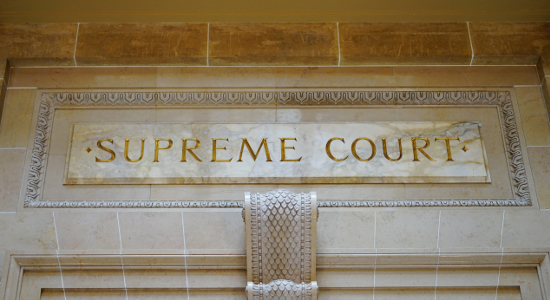
Feb. 25, 2020 – The Wisconsin Supreme Court has ruled, in a duty-to-defend issue of first impression, that a school district’s insurer did not breach its duty to defend a lawsuit against the school district and thus was not responsible for additional attorney fees.
Retired employees of the Germantown School District sued the district, in a class action lawsuit, after the district discontinued long-term care insurance benefits. The retired employees alleged breach of contract, among other claims noted in the complaint.
The district tendered defense of the lawsuit to its insurers, Employers Insurance Company of Wausau and Wausau Business Insurance Company. The insurers rejected the tender, concluding that the insurance policies did not cover the alleged claims.
That is, the policy covered negligent acts, and the complaint alleged that the school district’s act of discontinuing benefits was deliberate and intentional, the insurers said.
The insurers also told the school district that if it disagreed with this decision, the insurer would file a motion in circuit court to obtain a coverage determination, which it did.
The insurer filed a motion to intervene and asked the court to bifurcate the liability and coverage issues. Three months after the hearing, the circuit court issued its decision.
The circuit court allowed bifurcation but denied a motion to stay liability proceedings. This prompted the insurers to provide a full defense on the liability issues, and pay the school district’s attorney fees incurred retroactive to the tender on the issue of liability.
The circuit court ruled that the insurers had a duty to defend because the complaint alleged negligence, which was covered by the district’s policies. Ultimately, after a jury trial on liability, the circuit court ruled that the school district was not liable.
The school district then sought attorney fees from the insurers, alleging the insurers breached a duty to defend and the district incurred additional attorney fees as a result.
The circuit court ruled that the insurer did not breach its duty to defend and thus did not owe additional attorney fees to the school district. The appeals court affirmed.
In Choinsky v. Employers Insurance Co. of Wausau, 2020 WI 3 (Feb. 13, 2020), the state supreme court (5-1) agreed that the insurers did not breach a duty to defend because the insurers “followed a judicially preferred approach to the coverage dispute.”
The majority noted that an insured is entitled to recover reasonable attorney fees incurred to establish coverage if the insurer breaches its duty to defend. But several judicially preferred procedures allow insurers to avoid breaching its duty to defend.
For instance, the insurer can elect to defend under a reservation of rights and provide a defense while the court resolves the coverage issue. An insurer can also request a bifurcated trial on coverage and liability, and move to stay proceedings on liability.
The insurers in this case moved to bifurcate on coverage and liability, and sought to stay proceedings on liability. But the circuit court denied the motion to stay.
“This case presents a problem with the fourth option when the circuit court denies the bifurcation or stay motion, resulting in the insured defending itself for a period of time on both liability and coverage,” wrote Justice Rebecca Bradley for the majority.
“We remedy that problem by clarifying the bifurcation/stay procedure: if a circuit court denies bifurcation or a stay of the liability case, in order to protect itself from being found in breach of its duty to defend, the insurer must defend its insured under a reservation of rights so that the insured does not have to pay to defend itself on liability and coverage at the same time,” Justice R. Bradley explained.
The majority noted that this fact scenario is a matter of first impression “but the controlling legal principle is not new.”
The opinion encouraged courts “to decide bifurcation and stay motions expeditiously and to grant the requested stay unless case-specific factors weigh against it.”
Finally, the majority rejected the school district’s argument that its insurer breached a duty to defend through delays in negotiating the hourly rate the insurer would agree to pay and for failure to reimburse the full amount it expended in liability fees.
“The inadequacy of the record means the School District forfeited review of this issue,” Justice Bradley noted.
Justice Daniel Kelly dissented. He said the insurers breached contractual obligations to the school district by refusing “to provide attorneys for their insured during a period of time that our cases unmistakably say they owed the insured a defense.”
